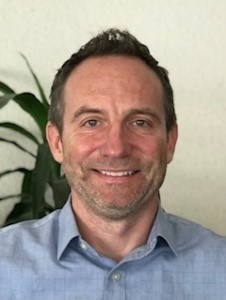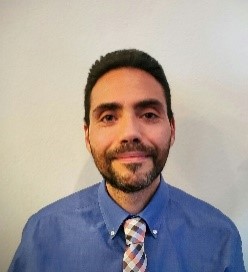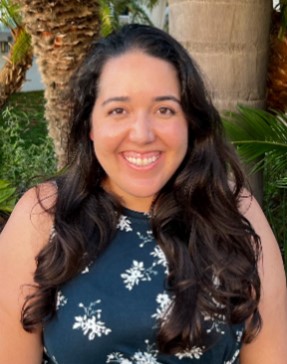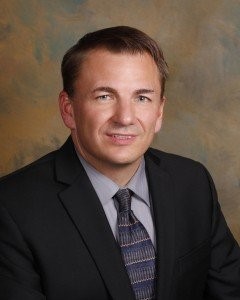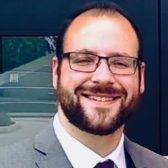DSH - Patton: Internships - Meet Our Supervisors
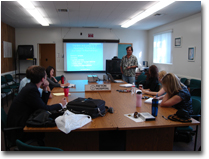
"I've learned that people will forget what you said, people will forget what you did, but people will never forget how you made them feel"
--Maya Angelou
The DSH-Patton Training Committee is composed of the Training Director, Chief of Psychology, and supervisors from the internship, fellowship, and practicum programs. The Training committee also includes all seminar leaders for the three training programs.
This committee meets monthly to discuss issues related to psychology training at Patton. Although the training committee members provide the bulk of the supervision in the three training programs, several other supervisors from the Department of Psychology provide additional supervision. Trainees at all levels are exposed to multiple supervisors each training year. The professional biographies listed below give a brief description of some of the interests of the Training Committee members and some of our more regular additional supervisors. Additionally, each supervisor below provided a few sentences about her/his/their approach to supervision.
Belel Ait Oumeziane, Psy.D. 
Biography:
Dr. Belel Ait Oumeziane received his Ph.D. in clinical psychology from Purdue University. He completed his pre-doctoral internship in the Addictions and Co-Occurring Disorders Track at the VA Boston Healthcare System. He remained at the VA Boston to complete his Postdoctoral Fellowship wherein he focused on specializing in trauma and substance use disorders through the Dual Diagnosis Track. There, he gained experience in working with diverse Veterans across outpatient, domiciliary, and couples clinics. After completing his training, Dr. Ait Oumeziane worked as a clinical psychologist at the West Palm Beach VA before becoming a staff psychologist at DSH-Patton. Currently, he is a psychologist on an all-female long-term unit. Dr. Ait Oumeziane specializes in using evidence-based approaches, such as CBT, DBT, ACT, and CPT, with patients presenting with a variety of psychopathologies. Dr. Ait Oumeziane began serving as a clinical supervisor in the internship program shortly after arriving at DSH-Patton. He is currently the long-term rotation supervisor for clinical psychology interns on the Clinical Track. Dr. Ait Oumeziane’s research interests historically included leveraging psychophysiological techniques as intermediate phenotypes within the broader etiological cascade for psychiatric illnesses. More recently, his interests include evaluating outcomes of evidence-based treatments in forensic populations. In his spare time, he enjoys baking and spending time with his family.
Approach to Supervision:
“In supervision, I emphasize the integration of evidence-based techniques with my supervisee’s unique therapeutic style. I try to create a supportive, yet challenging, environment that encourages skills development, ethical awareness, and self-awareness in order to provide high quality patient care.”
Cynthia Aguilar, Psy.D. 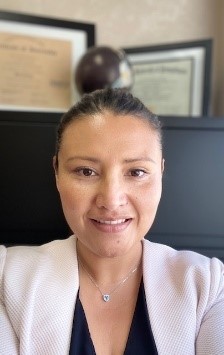
Biography:
Dr. Aguilar received her Psy.D. in Clinical Psychology from the Indiana University of Pennsylvania with an emphasis in Neuropsychology. She went on to complete her Clinical Psychology Internship from the Miami VA Healthcare System, where she specialized in both Geropsychology and Neuropsychology. She completed a 2-year postdoctoral fellowship in Clinical Neuropsychology at DSH-Patton. Dr. Aguilar subsequently worked as a staff neuropsychologist in the private sector, where she specialized in providing neuropsychological services to older adults with suspected cognitive disorders. Ultimately, she returned as a staff neuropsychologist for DSH-Patton and is actively involved in the training program at the practicum, internship, and postdoctoral level. Dr. Aguilar speaks fluent Spanish and has been actively involved in providing equal access to neuropsychological services to the vast number of Spanish speaking patients at DSH-Patton. Dr. Aguilar’s primary interests include gero-neuropsychology, Latinx factors in neuropsychology, and the intersection between the two. Cognitive rehabilitation, and the “treatment” aspect of neuropsychology is an additional interest for her. She is one of the primary facilitators for the FREE program, which provides cognitive remediation therapy to patients with low cognitive functioning. In her spare time, she enjoys reading and spending most of her time outdoors.
Approach to Supervision:
Working with trainees is one of the most rewarding aspects of my job. As a supervisor, I have a strength-based and collaborative approach to training. My overarching goal to help a trainee begin to tackle clinical issues less through the lens of a trainee and more through the lens of an independent clinician. I believe the training years is a time to build confidence as a clinician, while simultaneously being exposed to complex clinical cases that will help the trainee grow as a clinician. I stive to provide a supportive structure where the trainee can obtain unique, challenging, and rewarding clinical experiences to help them in their professional goals.
Robert Brodie, Ph.D. 
Biography:
Dr. Brodie has always had two particular educational passions, psychology and criminal law. While completing his B.A. degree at the University of California, Irvine, he majored in psychology and had a minor in criminal law. While at UC Irvine he took a course entitled the Psychology of Blacks and began to learn the foundation for what grew into the field of cross-cultural psychology. He attended the University of California, Santa Barbara because its doctoral program specialized in issues of multiculturalism and cultural competence. Dr. Brodie completed his clinical internship in the Forensic Track at DSH - Patton. The following year, he completed the postdoctoral fellowship in Forensic Psychology DSH - Patton. Currently, Dr. Brodie is a Senior Psychologist Supervisor at Patton, where his clinical work allows him to complete forensic assessments, conduct individual and group therapy, and participate in the supervision and training of our clinical trainees and Staff Psychologists. In addition to his work at Patton, Dr. Brodie has been an adjunct instructor at the University of La Verne and holds a private clinical practice providing assessment, treatment, and consultation and specialize in providing culturally responsive services and interventions.
Approach to Supervision:
“Clinical supervision is a process that is adjusted depending on the needs of the supervisee and the type of treatment that is being provided. I thoroughly enjoy the process of supervision and hope that the supervisee will also. I look to challenge the supervisee to push the limit and try different techniques in their work. My theoretical orientation is cognitive-behavioral but I am eclectic in technique. Internship is a year to develop a professional identity and I hope to assist in that process. Remember two things, recognize when you are working harder than your client and enjoy the work that you do.”
David Contreras, Psy.D., ABPP 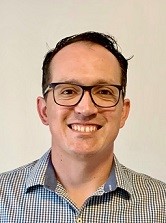
Biography:
Dr. Contreras received his doctorate in clinical psychology from the University of La Verne. He completed his predoctoral internship at Arkansas State Hospital and then, a Forensic Postdoctoral Fellowship at the University of Arkansas for Medical Sciences/Arkansas State Hospital. He is board certified in forensic psychology by the American Board of Professional Psychology (ABPP). Dr. Contreras serves as a fellowship supervisor and also coordinates the internship assessment seminar where he lectures on various criminal capacities and mental health case law. Currently, Dr. Contreras is a Senior Psychologist Specialist in the DSH – Patton Forensic Evaluation Department. Dr. Contreras has provided trainings in the areas of violence risk assessment, competency, and malingering, and he is an author-approved trainer for the HCR-20v3. In addition to his duties at DSH – Patton, Dr. Contreras also maintains a private practice where he assesses various psycholegal capacities with adult and juvenile populations. He serves on expert panels for both San Bernardino and Los Angeles County, and he is also on a select panel of experts addressing juvenile competency matters in Los Angeles. His clinical and research interests include psychometrics, report writing, and assessment of response style. In his spare time, Dr. Contreras is an avid golfer, music fan, and collector of vintage guitars and amplifiers.
Approach to Supervision:
“Serving as a supervisor is one of the most rewarding aspects of my position, and I am consistently impressed by the wealth of knowledge and expertise our trainees bring into their training year. My goal is to help trainees recognize, and take ownership of their vast knowledge, while providing them with a space to develop new interests or specialty areas. It is my hope that by the end of the training year, interns are ready to transition into their roles as early career psychologists and budding leaders in our field.”
Maria Cueto Lopez, Psy.D. 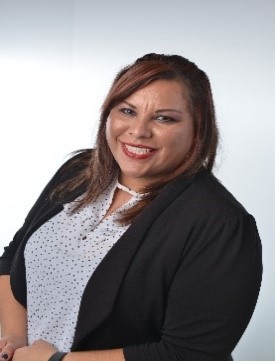
Biography:
Dr. Maria Cueto Lopez has always had two main passions, psychopathology and providing a safe space for individuals to process their internal conflicts. Prior to attending graduate school, Dr. Cueto Lopez spent two years as a behavioral specialist aid, providing in-home ABA therapy to children and adolescents with an autism spectrum disorder or other developmental disabilities. She then attended graduate school and received her Psy.D. in Clinical Psychology with an emphasis in Family Systems from Azusa Pacific University (APU) in 2020. While at APU, Dr. Cueto Lopez completed both the Family Forensic Psychology and Psychodynamic concentration tracks as part of her educational training. She completed an internship at DSH-Metropolitan. As part of her internship training, she completed rotations in the female forensic unit and LPS unit, working with patients who were committed through criminal commitment codes including Incompetent to Stand Trial (IST), Not Guilty by Reason of Insanity (NGRI), or meet criteria as an Offender with Mental Health Disorders (OMD), and adult female and male patients admitted through civil commitment codes for the continuation of psychiatric symptom management for danger to self and danger to others. Her pre-internship supervised experience included rotations at Sharper Future, providing specialized sex offender treatment, the California Institution for Men, administering general psychological assessment to adult inmate patients, APU Community Counseling Center, providing individual and family therapy, and outsourced treatment to elementary and high schools in the Azusa Unified School District. In 2020, Dr. Cueto Lopez was hired at DSH-Atascadero where she worked on a PC1370 (competency) Spanish-speaking unit. She then transferred to DSH-Patton in 2021, where she currently works on a PC1370 (competency) unit. In 2024 she became the chair of the Psychology Credentials Committee.
Approach to Supervision:
“I believe that clinical supervision is a collaborative process, where we work together to understand the patients we serve at the hospital. My goal is to help each trainee grow into an autonomous, self-confident professional, who can value the process of professional consultation and can work collaboratively with others. I conceptualize in an integrative framework primarily drawing upon psychodynamic, cognitive behavioral, and family systems.”
Sheri Curtis, Ph.D. 
Biography:
Dr. Curtis received her Ph.D. in Clinical Psychology from Loma Linda University in 2004. She completed her internship and postdoctoral fellowship in clinical psychology at DSH - Patton. Dr. Curtis has received advanced training in Dialectical Behavior Therapy (DBT), Gestalt Therapy and Psychodynamic Therapy. She has published in the areas of codependency and victim blame and her current research interest is in attachment theory, measurement, and clinical applications. Currently, Dr. Curtis is a Senior Psychologist Supervisor at Patton. In this capacity, she provides clinical supervision for 10 psychologists. Dr. Curtis has a strong interest in different psychological treatment modalities including DBT and is currently on the statewide DBT implementation committee for the California Department of State Hospitals. She has been a Coordinating Supervisor within the Patton internship for several years. In addition to her work at Patton, Dr. Curtis maintains a private practice in the community.
Approach to Supervision:
“Being a supervisor is a rewarding experience. On a professional level, it is stimulating because there is an element of seriousness to the process as well as an element of creativity. With supervisees, I encourage discussing the important topics of ethics, research findings, evidenced based practice, professional growth and adjustment, and case conceptualization. On a personal level, I consider the opportunity to work with interns as they transition to their professional roles a profound privilege.”
Biography:
Dr. Glassmire is the Psychology Training Director at Patton. In this role, he directs the internship program and postdoctoral fellowship in forensic psychology, and he provides administrative support for the other training programs in our department. Dr. Glassmire is a board-certified specialist in forensic psychology with the American Board of Professional Psychology. He completed a postdoctoral fellowship in forensic psychology with an additional emphasis in clinical neuropsychology at Patton in 2002. Dr. Glassmire was formerly the psychologist in Patton’s Substance Abuse and Mental Illness program and was later a psychological assessment consultant on a program for patients adjudicated as incompetent to stand trial. He enjoys teaching and was formerly a part-time adjunct faculty member in the Department of Gerontology at the University of Southern California teaching both graduate and undergraduate classes for six years. Dr. Glassmire’s research group at Patton focuses on forensic assessment including use of the MMPI-3, trial competency assessment, and the assessment of symptom and performance validity. His research often focuses on evaluating the accuracy of assessment instruments across cultural groups and clinical populations commonly seen in forensic settings. Abstracts of his research projects can be found on his ResearchGate profile. In 2023, Dr. Glassmire was awarded the Distinguished Contributions to Forensic Psychology Award from the American Academy of Forensic Psychology. In his spare time, Dr. Glassmire enjoys distance running, listening to music, and spending time with friends and family.
Approach to Supervision:
“Supervision is one of the most rewarding parts of my job because it allows me to participate in the professional development process of future psychologists. I view supervision as a collaborative process in which we work together to provide compassionate high-quality treatment services and to create assessment work products that embody excellence, integrity, and transparency.”
Biography:
Dr. Hannifin received her Psy.D. in Clinical Psychology with an emphasis in Family Systems from Azusa Pacific University in 2008. She completed an internship at The Guidance Center in Long Beach. As part of her internship training she completed specialty rotations in neuropsychology at Jonathan Jaques Children’s Cancer Center at Long Beach Memorial Medical Center and in child/adolescent trauma and abuse at the federally funded MCAVIC-USC Child and Adolescent Trauma Center in Long Beach. Dr. Hannifin also received one year of formal Dialectical Behavior Treatment (DBT) training at Harbor UCLA. Dr. Hannifin was hired as a staff psychologist at DSH-Patton in 2008 and worked on admission units until 2019 when she joined the Forensic Evaluation Department (FED) as a forensic evaluator. In 2021, Dr. Hannifin was appointed as one of the Senior Psychologist Supervisors in the FED. Dr. Hannifin also has a private practice in which she completes forensic evaluations and serves as a Qualified Medical Evaluator (QME). Dr. Hannifin has provided supervision at the practicum and intern level and is currently the Professional Development Seminar facilitator for the Post-Doctoral fellows.
Approach to Supervision:
“As a supervisor, my goal is to help each trainee grow into an autonomous, self-confident professional. I like to create a supervision environment that trainee’s feel comfortable sharing not only individual case questions but professional growth questions. My approach to supervision is one that is collaborative as I believe this approach allows trainees the opportunity to develop stronger case conceptualization skills and a sense of professionalism. I find working with the trainee’s in one capacity or another is one of the most fulfilling and rewarding aspects of my role as a psychologist.”
Biography:
Dr. Hartounian graduated from the University of California, Los Angeles with a Bachelor of Arts degree in psychology. She received her Master of Science and Doctor of Psychology degrees in clinical psychology from the University of La Verne. She completed advanced practicum training at Patton State Hospital. Dr. Hartounian completed her pre-doctoral internship at Mendota Mental Health Institute, an inpatient forensic state hospital in Wisconsin. During internship, she completed rotations focused on violence risk and competence to stand trial assessments. As a post-doctoral fellow at Central Regional Hospital’s Forensic Evaluation Center in North Carolina, she completed outpatient evaluations of competence to stand trial and mental state at time of the offense. In 2018, Dr. Hartounian was hired at Patton State Hospital, where she works on an all-male PC 1370 (competency) unit.
Approach to Supervision:
“As a new graduate student/practicum trainee, I viewed supervision as completely focused on being 'taught' how to conceptualize a case, diagnose a client/patient, do therapy, and write assessment reports. Through the supervision that I received and my research/dissertation on the topic of supervision, I realized that a great supervision was more than just ‘teaching’ your trainees these clinical and assessment skills. I like to start the supervision process by focusing the initial session(s) on discussing the trainee's experience, trainee's expectations from supervision and goals, expectations from the trainee, and our roles in this process. The supervision process is different depending on the needs and the development level of the trainee. In addition, each session can be different depending on what we agree is most important to discuss/focus on. For example, with previous trainees, we have had sessions where we have completely focused on case conceptualization and/or editing an assessment report. At other times, we have spent session(s) discussing the challenges and/or countertransference that a trainee has experienced while working with a client/patient. And, at times, our supervision sessions have been completely focused on professional development topics such as discussing future training sites/opportunities, career goals, expectations/challenges during internship and/or post-doctoral training year, etc.”
Biography:
Shelby Hunter is a clinical neuropsychologist within the Psychology Department at DSH-Patton. She earned her doctoral degree from the University of Alabama within the Psychology & Law track. She completed her predoctoral internship training at the University of Massachusetts (UMass) Chan Medical School and Worcester Recovery Center & Hospital with emphases in both forensic psychology and neuropsychology. She completed a 2-year fellowship in clinical neuropsychology at DSH-Patton in 2024 and was thereafter hired into her current position. Dr. Hunter's clinical and research interests lie at the intersection of forensic psychology and neuropsychology. Specifically, she is interested in how neuropsychological services and approaches can be integrated into forensic contexts to improve standard and efficiency of care. Abstracts of her research projects can be found on her ResearchGate profile.
Approach to Supervision:
“My approach to supervision is centered on providing a safe and constructive space for trainees to grow, learn, and achieve their goals. Building upon my positive supervisory experiences as a trainee, I aim to help develop practical clinical skills while also building professional confidence and self-advocacy.”
Biography:
Dr. King completed his doctoral degree in clinical psychology at the California School of Professional Psychology at Alliant International University, San Francisco campus. He completed his internship and two-year postdoctoral residency in neuropsychology at California Department of State Hospitals (DSH), Patton. He then earned board certification in clinical neuropsychology through ABPP. Subsequently, he worked in a variety of settings as a neuropsychologist, including DSH-Coalinga, Loma Linda University, Kaiser Permanente, and private practice. He has experience working with individuals across the lifespan and in a variety of departments, such as developmental and behavioral pediatrics, neurology, neurosurgery, and behavioral health. He has also taught graduate courses in cognitive assessment, personality assessment, and clinical neuropsychology. Dr. King is currently a neuropsychologist at DSH-Patton and directs the FREE program, which integrates cognition-focused interventions and trial competency restoration for individuals with cognitive challenges.
Approach to Supervision:
“Whether supervision is individual, in a group setting, or during an impromptu 'walk and talk' session, my approach is collaborative, patient centered, and solution focused. Being part of the journey that trainees take to develop and grow professionally provides me inspiration and optimism for what the future of our field holds.”
Biography:
Dr. Kinney received her Ph.D. in Clinical Psychology from the Pacific Graduate School of Psychology with an emphasis in Neuropsychology. She completed her internship in the Clinical Neuropsychology Track at DSH - Patton State Hospital and then completed a postdoctoral residency in clinical neuropsychology at DSH-Patton. She board certified in clinical neuropsychology through the American Board of Professional Psychology. Currently, she is the Director of DSH - Patton's Neuropsychology Consultation Service. She is a primary supervisor for Neuropsychology Interns and fellows, and she is the Co-Director of the Neuropsychology Post-Doctoral Fellowship. She is particularly interested in the neurocognitive correlates of psychiatric illness and the complexities that arise from providing neuropsychological services to dually-diagnosed individuals. Her areas of clinical and research interest are in psychiatric neuropsychology, cross-cultural psychology, and positive psychology. Abstracts of her research projects can be found on her ResearchGate profile. In her free time, she enjoys the sense of fulfillment she receives from the "vital engagement" of family life.
Approach to Supervision:
“Supervision at the intern level is an opportunity to assist the supervisee in shedding the student persona and helping the intern to develop into the type of professional he or she hopes to become. Whether working with patients or supervisees, it is my perspective that bolstering the weaknesses in others does not equal promoting the best in others. Therefore, I hope to provide a training environment that identifies, fosters, and supports an intern's professional gifts and talents.”
Biography:
Dr. Laurel Mattos received her Ph.D. in Clinical Psychology from Sam Houston State University with an emphasis in forensic psychology. She is a board-certified specialist in forensic psychology with the American Board of Professional Psychology. She completed her internship in the Forensic Track at DSH-Patton and stayed to complete her Postdoctoral Fellowship in Forensic Psychology. She currently serves as a Senior Psychologist Specialist in DSH-Patton’s Forensic Evaluation Department, where she primarily conducts evaluations of trial competency, as well as malingering evaluations, comprehensive risk assessments, commitment extensions, and provides expert testimony. In addition to her strong interest in forensic assessment, she enjoys providing individual and group therapy and has served on the local DBT implementation committee at DSH-Patton, as well as the Transgender Treatment Advisory Committee. Her research interests include recent projects evaluating the validity and utility of measures of response style with diverse populations. Abstracts of her research projects can be found on her ResearchGate profile. She currently serves as an Assessment Supervisor in the internship program and has also supervised within the Fellowship program. In addition to her work at DSH-Patton, she holds a forensic private practice in the community conducting competency, sanity, mental health diversion, risk assessment, and mitigation evaluations. Outside of work, she enjoys playing pickleball, going to the theater, and spending time with her family and two dogs.
Approach to Supervision:
“When reflecting upon the numerous supervisors who helped shape my professional development, it is an honor to serve in a supervisory role to the talented and dedicated individuals entering our field. In my experience, supervision is a collaborative process in which learning takes place in both the supervisor and supervisee. I hope to create an open and supportive environment where trainees can share their experiences and perspective and discuss case conceptualizations, ethical quandaries, cultural considerations, professional development, and more. My approach is to create a structure which takes full advantage of the diverse population and flexible training model at DSH-Patton by helping supervisees identify goals for the year (e.g., types of cases and experiences they would like) to allow them to dive into specific interests, develop new skills, and hone core competencies. My goal is to encourage interns to develop their independence and professional identify throughout the year, including being able to articulate their approach and an understanding of why they make the choices they do.”
Stephany Molina, Ph.D.
Biography:
Dr. Molina received her Ph.D. in clinical psychology from the University of Nevada, Las Vegas. She completed her pre-doctoral internship in the Forensic Track at DSH-Patton. She remained at DSH-Patton to complete her Postdoctoral Fellowship in Forensic Psychology. After completing her forensic training, Dr. Molina worked as a clinical and forensic psychologist at state hospitals in Massachusetts and Florida. In these positions, she completed forensic and clinical assessments, provided individual and group treatment, conducted staff trainings related to forensic and clinical issues, served as an expert witness, and supervised psychology trainees. In 2022, she returned to DSH-Patton as a Senior Psychologist Specialist in the Forensic Evaluation Department. In her current role, she conducts violence risk assessments, sex offender risk assessments, and competency evaluations. Additionally, Dr. Molina is fluent in Spanish and regularly conducts Spanish-language forensic evaluations. Dr. Molina has served as an assessment coordinator in the internship program and a coordinating supervisor in the forensic fellowship. She is also currently one of the co-facilitators of the forensic fellowship’s landmark case seminar. Dr. Molina’s research interests include psychopathy and forensic assessment of Spanish-speaking populations. Abstracts of her research projects can be found on her ResearchGate profile. In her spare time, Dr. Molina enjoys traveling, exercising, and spending time with her two black cats, Bellatrix and Eevee.
Approach to Supervision:
"Being a supervisor is one of the most rewarding aspects of my career! I view supervision as a collaborative process where both the supervisor and trainee learn from one another. I will regularly solicit feedback from the trainee and make adjustments as needed. I aim to create a comfortable and supportive environment for the trainee to build confidence as they work towards developing their forensic skillset and achieving their individualized training goals. As the year progresses, I help the trainee develop their independence and professional identity as they transition into the next phase of their career."
Biography:
Dr. Mona Mosk received a double Master’s in Clinical and Community Psychology at California State University, Northridge with a minor in Multicultural Psychology and received her Ph.D. in Clinical Psychology in 1996 from the University of South Dakota. She completed her internship at the Audie L. Murphy Memorial Veteran’s Hospital in San Antonio Texas. Following completion of her undergraduate degree, Dr. Mosk initially specialized in general trauma, working consistently with sexually and physically abused children between the ages of 2 and 14 and their families. Since coming to DSH - Patton, Dr. Mosk has specialized in Deaf Psychology, working on the Deaf and Hard-of-Hearing Unit. This unit is the only forensic, deaf-focused unit in the State of California, providing services in American Sign Language (ASL). Dr. Mosk, who is fluent in ASL, is certified as bilingual by the State of California and can provide supervision to interns who work with - Patton’s deaf and hard-of-hearing patients.
Approach to Supervision:
“I believe that the purpose of supervision is to help interns develop their own therapeutic and conceptualization style. I find the intern’s development from “student” to “professional” over the course of a year to be both challenging and rewarding. My goal at the end of the year is to have interns be able to understand what they are doing and not doing in psychotherapy and assessment arenas and why.”
Biography:
Dr. Nitch is board certified in Clinical Neuropsychology through the American Board of Professional psychology (ABPP). Dr. Nitch received his Ph.D. in Clinical Psychology in 2002 from Loma Linda University, with a concentration in Neuropsychology. His doctoral dissertation explored the relationship between chronic pain and non-pathological personality traits. Dr. Nitch completed an internship at the Loma Linda VA Hospital and then a Neuropsychology Fellowship at Harbor-UCLA Medical Center. Upon the inception of the Neuropsychology Consultation Services at DSH - Patton in 2004, he began his tenure in state service. Dr. Nitch is the Co-Director of Neuropsychology Fellowship Training at Patton. When not serving the governor, Dr. Nitch works in the outpatient Psychiatry clinic at the Loma Linda Medical Center and in an assessment private practice. His research interests include performance validity, the cognitive correlates of psychosis, and best practices for treating severe mental illness via cognitive remediation. . In addition, he maintains an active interest in studying the functional effects of psychotropic medications, having earned a Master's Degree in Psychopharmacology (2006). Abstracts of his research projects can be found on his ResearchGate profile. When it is time for diversion, his activities of choice include trail running and watching documentaries.
Approach to Supervision:
“Looking back upon my own experience, I believe that a good supervisor encourages the steady development of a skill set while allowing for the exploration of new areas of interest. It is all too soon that one’s training period is over and it is time to fulfill the myriad responsibilities of an independent practitioner. As such, it is my hope that the people I supervise take the time to immerse themselves in the specialty areas that interest them and soak up the rich clinical environment that DSH - Patton affords. I encourage supervisees to proactively identify the types of cases and experiences that they want to have at the outset of the training year. In supervision, I strive to provide a balance of didactics and mutually generated case conceptualization, with more independence given as the training year progresses.
Biography:
Dr. Osuna received her doctorate degree in Clinical Psychology from Alliant International University, Los Angeles campus. She completed her internship at Metropolitan State Hospital and started working as a staff psychologist at Patton State Hospital in November 2021. Dr. Osuna initially worked with male patients who were found incompetent to stand trial (IST). She provided individual treatment, completed evaluations for competency, and conducted admissions psychological assessments. In her current position, Dr. Osuna works with female patients who were found not guilty by reason of insanity (NGI) and with individuals committed to the hospital under California’s Offender with a Mental Disorder (OMD) statute. She provides individual treatment, creates behavioral plans, conducts violence risk assessments, and provides consultation on milieu plans for other units to address problematic behavior unit wide. Dr. Osuna provides supervision to practicum trainees and co-facilitates Diversity, Equity and Inclusion Training for newly hired employees and providers. Outside of work, Dr. Osuna enjoys watching live music, catching a play, and watching the sunset with her three cats.
Approach to Supervision:
“My goal as a supervisor is to create a supportive, structured, and collaborative environment where the trainee can feel safe in developing new skills and refining current ones. Supervision includes of an ongoing discussion of identifying professional goals and areas of interest. In this way, the training experience can be tailored to the specific interests of the trainee. By the end of the year, the goal is that the trainee has an enriching experience that fosters confidence in their clinical abilities and growth in their professional identity.”
Biography:
Dr. Pate received her Master’s in Clinical Psychology from Middle Tennessee State University and in 1999 received her Ph.D. in Clinical Psychology from the University of North Dakota. After completing her internship in the Clinical track at DSH-Patton, she was hired and worked for five years as the sole psychologist for DSH-Patton’s only long term all-female fifty-bed unit. She then worked on an acute male admissions unit, after which she worked for two years on a co-ed wellness-focused long term care unit. In 2006, she moved to administration to assist the Psychology Chief with DOJ requirements, and in 2007 she became a Senior Psychologist Specialist. In January 2008, she was appointed Senior Psychologist Supervisor for Program I (now Program 6), and in 2013 she began sharing a caseload with another Supervising Psychologist. At present she is both a Senior Supervisor and the treating psychologist for fifteen patients on the geriatric unit. Dr. Pate has been providing supervision in Patton’s internship since 2002, and has served as a Coordinating Supervisor since 2005. She is board certified in Clinical Psychology through the American Board of Professional Psychology. She has published in the areas of personality traits, personality assessment, and crisis response, and has worked in the community at a program that treats and assesses sex offenders. In 2006, she completed a yearlong advanced training course in object relations psychoanalytic psychotherapy, and she has received advanced training in Dialectical Behavior Therapy. She maintains a part-time private practice providing psychological treatment and assessment. In her spare time she has earned two black belts in tae kwon do, plays soccer, and roots for Arsenal in the English Premiership Football league.
Approach to Supervision:
“I believe that supervision provides one of the most valuable and vital sources of growth for budding psychologists, and I enjoy and feel honored to play such a role in a new professional’s development. My approach begins with identification of the needs and interests of the supervisee. Within this framework, I strive to provide a collaborative, supportive and flexible atmosphere within which the supervisee can explore theories and ideas, hone therapeutic interventions, incorporate ethical and cultural considerations, discuss professional development issues, and learn from new experiences.”
Biography:
Dr. Reynolds has served as a clinical neuropsychologist and supervisor at DSH-Patton since 2022. He received his doctorate in clinical psychology from the University of Tulsa, with completion of a pre-doctoral internship at DSH-Patton (Neuropsychology track). He transitioned afterwards to a two-year neuropsychology post-doctoral fellowship at Cedars Sinai Medical Center (CSMC), specifically within the Physical Medicine and Rehabilitation department, as well as at the UCLA/CSMC California Rehabilitation Institute. Dr. Reynolds currently works as a senior psychologist within the Neuropsychology Consultation Service (NCS) here at DSH-Patton. This role entails comprehensive assessment and cognitive rehabilitation intervention for individuals suffering from any combination of severe psychiatric disturbance, polysubstance abuse, medical comorbidities, and potential neurologic illness. Recently, Dr. Reynolds has begun to deploy a new consultation and behavioral management program (AVERT), which targets the cognitive and trait correlates of impulsive and risk-taking conduct. Elsewhere, he is involved in both the DSH-Patton Neuropsychology internship and post-doctoral programs as a consulting supervisor, and he has served as both an assessment and coordinating supervisor with trainees. Dr. Reynolds’ research interests include investigation of the neuropsychiatric aspects of multiple sclerosis and movement disorders (e.g., PD, DLB, PSP, MSA), as well as examining the neuropathological and cognitive indicators of risky behavior in clinical and non-clinical populations. Abstracts of his research projects can be found on his ResearchGate profile. External to DSH-Patton, Dr. Reynolds is a credentialed neuropsychologist at Loma Linda University Medical Center, where he provides consultation for individuals suffering from neurodevelopmental conditions (e.g., ADHD, LD, autism spectrum). He is also a contract provider for South Coast Community Services, where he is involved in pediatric neuropsychological assessment. In what free time is left, Dr. Reynolds enjoys basketball, hiking with his wife and corgi, and going to concerts and music festivals.
Approach to Supervision:
“Supervision is an incredibly rewarding and meaningful experience. I think back to the many stellar supervisors I had in navigating the marathon that is graduate school- without their invaluable guidance and encouragement, I’m not sure I end up where I am today. Firstly, supervision is collaboration; I want discussions to be an educative back-and-forth discussion, rather than just another banal lecture or sequenced set of feedback. I expect supervisees to come to sessions hungry to learn, as well as to feel empowered to disagree and challenge the status quo of what we do as psychologists. In turn, my role then becomes one of gently pruning and shaping perspectives, rather than simply contradicting and redirecting. Another major facet of my approach is helping trainees find their “voice” in their clinical service and written products. I begin the year with significant scaffolding, only to gradually scale this back as my students build confidence; it is my hope that by the end of their time at DSH-Patton, they will creatively “own” their work. We may not be able to shed the specter that is imposter syndrome, but we will learn to accept it and not let it interfere with reaching one’s full capabilities.”
Jesus Rodriguez, Ph.D.
Biography:
Dr. Rodriguez received his Ph.D. in 2006 from the combined program in Clinical, Counseling, and School Psychology at Utah State University. He completed his pre-doctoral internship at DSH-Patton before joining the hospital as a staff member in 2006. Dr. Rodriguez has a strong interest in the theory and practice of psychotherapy. He uses an integrative approach in his work with clients, with client-centered theory providing the foundation for integrating other theoretical ideas and techniques. He also has a strong interest in ethnic minority mental health issues, with special emphasis on the relation between acculturation and mental health. Dr. Rodriguez currently works on a monolingual Spanish speaking unit where he conducts assessment and therapy in Spanish. Dr. Rodriguez is the facilitator of the internship Professional Development Seminar.
Approach to Supervision:
“I truly enjoy working with students and helping them in them their development as psychologists. My approach to supervision is in large part determined by the student’s needs. For example, if a student would like to develop a specific assessment skill, then I may take a more directive role in supervision in an effort to help the student develop that skill. More generally, I believe in creating an atmosphere of trust and understanding from which the student can feel comfortable identifying his or her professional needs. Once these needs are identified, I work collaboratively with the student to help him or her fulfill these needs.”
Biography:
Dr. Sillo received her Psy.D. in Clinical Psychology with a minor concentration in family studies from Loma Linda University. She completed her practicum at Patton in 2006 and went on to complete her internship at the Federal Bureau of Prisons, Metropolitan Detention Center. In addition to working on a variety of research projects in the field of substance abuse, she was a project coordinator for the UCLA Integrated Substance Abuse Program. She has also provided substance abuse treatment at the Matrix Institute for Addiction. Dr. Sillo has taught at the University of La Verne as a part-time faculty member. She is an Army reserve veteran and her service consisted of performing duties as a psychologist within a medical unit. She has also performed work as a Qualified Medical Evaluator and has provided other types of forensic consultation services working with both juvenile and adult populations. She has enjoyed supervising students at Patton since 2008 and her approach to supervision includes assisting each trainee transition into a balanced professional life. In her spare time, Dr. Sillo enjoys spending time with friends and family, cooking, exercising, watching movies, and traveling.
Approach to Supervision:
“Supervising has been among the most rewarding parts of my position at Patton. I feel very lucky to be a part of the dynamic growth experience in the lives of students in a setting such as Patton. I like to be a part of this exciting journey and find most rewards lie in watching students grow and move on to the next stage in their professional lives. My approach to supervision involves meeting students at their developmental level with a focus on helping them grow and meet their unique goals.”
Biography:
Dr. Singleton received her Psy.D. in Clinical Community Psychology from the University of La Verne. Prior to joining the staff at DSH-Patton, she worked as a Research Specialist II with Riverside County Department of Public Social Services, where she conducted numerous research and program evaluation projects. She has worked at DSH-Patton since 2011. As a unit psychologist, she worked with patients adjudicated as incompetent to stand trial, as well as offenders with mental health disorder, and patients found not guilty by reason of insanity. She has been the practicum director since 2019, and she has been a Senior Psychologist Supervisor since 2021. She currently runs the practicum training program and supervises clinical staff in off-unit positions, including the psychologists working in the Enhanced Treatment Program. She is the co-chair of Patton’s Transgender Treatment Advisory Committee. In her private practice, she also conducts both civil and criminal forensic evaluations. Her clinical and research interests include gender-affirming care, adjudicative competence, program development and evaluation, and violence risk reduction.
Approach to Supervision:
“One of the most rewarding parts of my job is being involved in our training programs. I see supervision as a collaborative process between the trainee and supervisor and driven by the needs of the trainee. Throughout the year, I enjoy watching trainees gain comfort with, and confidence in, their own skills and abilities, and their ability to make complex connections between theory and practice.”
Biography:
Dr. Souza is a board-certified specialist in forensic psychology with the American Board of Professional Psychology (ABPP). He received his doctorate in clinical psychology from Pepperdine University. He completed his pre-doctoral internship at NYU-Bellevue Hospital and continued his forensic training in the Postdoctoral Fellowship in Forensic Psychology at DSH-Patton. Currently, Dr. Souza is a senior psychologist in DSH-Patton’s Forensic Evaluation Department where he conducts comprehensive risk assessments, commitment extensions, competency, malingering evaluations, and provides expert testimony. He is fluent in Spanish, and he regularly conducts Spanish-language forensic evaluations. Dr. Souza has served as a coordinating supervisor for Patton’s postdoctoral fellowship in forensic psychology for several years. He specializes in violence and sex offender risk assessment and has conducted various trainings related to risk assessment for DSH and outside institutions. Additionally, he is an author-approved HCR-20-V3 trainer, and he is active in committees focused improving the quality and efficacy of violence risk assessment across the Department of State Hospitals in California. Dr. Souza maintains a private practice where he provides trial consultation and conducts assessments in both English and Spanish focusing on a variety of forensic issues including violence risk, sex offender risk, competency, insanity, and mental health diversion. His research interests include violence and sex offender risk assessment, psychopathy, and forensic assessment of Spanish-speaking populations. In his spare time, Dr. Souza likes to workout, travel, and catch up on Netflix documentaries.
Approach to Supervision:
"Without a doubt, serving as a supervisor is one of the most rewarding and enriching experiences of my career. I like to establish professional and personal goals at the beginning of the supervisory relationship that can be used to guide the training experiences of the supervisory dyad throughout the year. I hope to create a safe and supportive environment where we can build upon the trainee’s existing strengths and develop new areas of expertise and interest along the way. By the end of the training year, my goal is for the trainees to have developed the clinical and professional skills necessary to enter their new roles as early career psychologists."
Dr. Tsui received her doctorate in Clinical Psychology from Pepperdine University. She completed her predoctoral internship at Napa State Hospital and pursued a forensic postdoctoral fellowship at Northwest Forensic Institute. Her training has focused on forensic evaluations addressing various referral questions including competency to stand trial, criminal responsibility, mitigation, and violence risk/sexual violence risk, as well as treatment of individuals with a severe mental illness. After completing her fellowship, Dr. Tsui joined DSH-Patton as a staff psychologist. She initially worked on a long-term female unit and later transferred to an all-male admissions unit. In her current position, she provides individual and group treatment to male patients deemed incompetent to stand trial and conducts admissions psychological assessments. Additionally, she serves as a coordinating supervisor for the internship program. In her spare time, Dr. Tsui enjoys spending time with her two cats and exploring new restaurants and coffee shops.
Approach to Supervision:
“As a supervisor, I aim to create a supportive, competency-based environment that fosters professional growth. My approach centers on collaboratively identifying areas for development and setting clear, actionable goals. I provide ongoing feedback and guidance to ensure supervisees feel supported as they build their skills and confidence. My goal is to help them develop their independence and professional identity as they transition into the next phase of their careers.”
Dr. Turner is a licensed psychologist who completed his doctoral training at Rosemead School of Psychology in La Mirada, California. He completed an APA-accredited pre-doctoral internship with the county of San Bernardino, including a dual focus in forensic and community outpatient work. Dr. Turner completed his postdoctoral hours with the County of San Bernardino before transitioning into full time forensic work at West Valley Detention Center. He then began working at Patton State Hospital in 2020 and has been a member of the training committee since 2021.
Approach to Supervision:
“My approach to supervision is primarily informed by attachment, psychodynamic, emotion-focused, and dialectical behavioral theories. My hope is that all of my supervisee’s feel autonomous, effective, and confident by the end of our work together."
Dr. Jette Warka received her Ph.D. in Clinical Psychology in 2001 from Loma Linda University. She completed her internship at DSH - Patton and started working as a staff psychologist at DSH - Patton in September 2001 after completing her internship. Initially, Dr. Warka worked as a staff psychologist on a long-term treatment unit for 5 years. The patient population on the unit were mostly male patients who were found not guilty by reason of insanity and offenders with a mental illness. In September 2006, Dr. Warka joined the hospital's Positive Behavior Support Consultation Service where she worked as the chair of one of DSH - Patton's Positive Behavior Support Teams. Dr. Warka then served as a Senior Psychologist Supervisor, worked on a long-term treatment unit for female patients, and worked on the hospital's medically fragile unit. Dr. Warka worked part-time in the community with mentally ill parolees and sex offenders. Dr. Warka is originally from Denmark and she was a pre-school teacher before she came to the United States. Her clinical and research interests include development of personality, factors contributing to vulnerability for psychopathology, and factors contributing to resilience. Dr. Warka has been the Chief Psychologist at DSH - Patton since 2017.
Approach to Supervision:
“My approach to supervision is to meet the intern where he or she is and go from there. Initially, I provide a lot of structure in supervision, but as the intern becomes comfortable with our patients and the hospital, I let the intern take the lead. Supervision then becomes a collaborative process of understanding the individual and his or her current situation in terms of clinical theory, legal status, and interactions/process during sessions.”
Biography:
Dr. Williams received his Ph.D. in Clinical Psychology from the State University of New York at Binghamton in 2005. His research interests include the neurocognitive sequelae of psychiatric disorders as well as chronic medical conditions. He has published on the neurocognitive effects of hemodialysis and end-stage renal failure. Dr. Williams completed his internship in the Clinical Neuropsychology Track at DSH - Patton. He went on to complete a postdoctoral fellowship in Neuropsychology at DSH - Patton. The following year Dr. Williams was hired as a staff psychologist and currently serves as the Director of Patton’s RISE program, which provides cognitive remediation and social cognition training to patients with low cognitive functioning. In addition to his work at DSH - Patton, Dr. Williams also serves as an adjunct instructor with California State University at Pomona, where he teaches courses in the areas of Brain and Behavior, Multicultural Psychology, and Abnormal Psychology.
Approach to Supervision:
“Working with interns is one of the most stimulating and rewarding aspects of my job. I enjoy engaging with trainees in a collaborative manner that allows for a transition from academic to applied application of their clinical knowledge and skill. My goal is to help individuals build upon their unique strengths and skill sets. My approach to supervision is to provide a supportive structure in which the intern is comfortable with developing his or her professional autonomy. I encourage supervisees to approach their clinical work from a hypothesis testing perspective to aid and guide their therapeutic interactions and assessments.”
Biography:
Dr. Yenne received her Ph.D. in Clinical Psychology with a Forensic Emphasis from Sam Houston State University. She is a board-certified specialist in forensic psychology with the American Board of Professional Psychology. She completed her internship and postdoctoral fellowship in forensic psychology at DSH-Patton. She was then hired on as a staff psychologist at DSH-Patton where she worked as a unit psychologist on a long-term female unit and then a short-term male unit. From there, she transferred to the Forensic Evaluation Department where she conducts competency to stand trial and violence risk assessments. Dr. Yenne has been involved at all levels of the training programs at DSH-Patton as an assessment supervisor in the practicum and internship programs and as a co-facilitator for several seminars in the forensic fellowship. She also serves as co-chair for DSH-Patton’s Transgender Treatment Advisory Committee where her role includes education and outreach to the broader hospital community and assessment of capacity to consent to gender-affirming interventions. Her research interests include impartiality and quality in forensic mental health reports. Abstracts of her research projects can be found on her ResearchGate profile. Outside of DSH-Patton, Dr. Yenne serves as an adjunct professor at the University of Redlands and engages in forensic private practice work. In her spare time, Dr. Yenne enjoys playing the violin in a local community orchestra, crafting, and spending time with her dog, Norepinephrine.
Approach to Supervision:
“As a supervisor, I aim to create an environment where supervisees can gain confidence in the knowledge and skills they already possess while also feeling comfortable expanding their knowledge in new directions. Additionally, the internship year is an important time of socialization into the profession of psychology, so I view supervision as an opportunity to help supervisees discover and become comfortable in their professional identity.”


